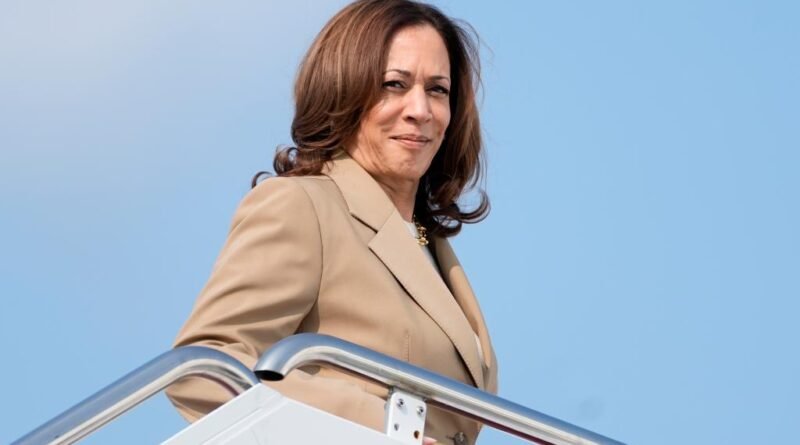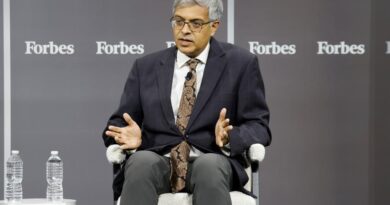GOP seizes rare opportunity as Democrats fall to elite capture

Kamala Harris’ slogan in her unsuccessful 2019 presidential campaign was “For the People.”
Her swift, uncompromising nomination as the Democratic presidential nominee shows that slogan no longer represents what she or her party stand for.
Harris’ Democrats are the elite party in America, plain and simple.
And like elites everywhere, they will fight relentlessly to maintain the power and privilege they have worked hard to acquire — as President Biden recently discovered to his detriment.
The evidence of this is abundant. At the voter level, Democrats are now predominantly the party of white college graduates.
Their support increases even more among college graduates with post-graduate degrees. Biden secured 62% of voters with graduate degrees, according to the Edison Research exit poll.
The Democrats’ alignment with the elite is further solidified by other indicators.
Democratic-friendly journalists and editors dominate nearly all of the traditional print and television media. Lawyers from both major corporate and plaintiffs’ firms overwhelmingly support Democratic candidates. University professors are predominantly liberal, outnumbering conservatives in even the most conservative discipline, economics, by nearly 5 to 1.
Additionally, over 80% of contributions from employees at tech giants like Apple, Google, and Nvidia went to Democrats in the 2020 election.
The implications of this are significant.
Wealthy and well-connected elites often wield their power to secure special benefits, such as the substantial subsidies universities have received or the public investments Big Tech obtained through the CHIPS and Science Act.
These elites reside in exclusive neighborhoods protected by restrictive zoning laws and work in professions shielded by costly licensing requirements.
Their influence over the American government, primarily through the Democratic Party, has ensured a favorable past two decades for them.
They resist change and are prepared to combat agents of change at any cost.
Therefore, when Harris claims to be running for “the future,” she essentially seeks a future resembling the recent past: more privileges for the affluent and educated, and added burdens for the working class.
This is a primary reason why the Republicans are increasingly becoming the party representing American workers.
Trade agreements with China and poorer nations have proven advantageous for universities, which benefit from Chinese students paying full tuition, and for financiers profiting from overseas investments.
Apple’s significant profit margins on products like the iPhone, reaching up to 60%, are attainable because of overseas manufacturing utilizing cheap labor in countries such as China and Vietnam.
However, the new global economy has not been as favorable to American workers who were previously involved in domestic manufacturing. One study revealed that competition from China alone led to the loss of almost 2.4 million American jobs.
These individuals were once the backbone of the Democratic Party, but now align more closely with the GOP.
In the 2020 election, Trump garnered 67% of the vote from white voters without a college education. To succeed, Republicans must maintain strong support from these voters.
The elite focus of Harris will become more apparent as the campaign progresses.
The influx of immigrants on a large scale benefits elites as they avail of cheaper labor, while native-born working-class voters struggle to compete with immigrants for jobs.
Policies related to climate change, such as those favored by Harris, enhance elite status without causing economic harm to them. However, working-class voters face challenges affording the increased costs associated with purchasing electric vehicles and transitioning their homes to renewable energy, especially since they are more likely to be in occupations impacted by the shift away from fossil fuels.
These trends are not unique to America; they are evident in developed countries worldwide.
The university-educated elites, once a fundamental part of the center-right, are now moving towards the left on cultural and economic fronts.
Meanwhile, working-class voters, experiencing diminishing status and stagnant or declining incomes, are turning to populist parties and figures on the right.
This political shift benefits the GOP, contrary to popular media narratives. Partisan affiliation surveys and registration trends have notably favored Republicans during the Biden administration.
If the GOP can leverage these trends effectively, they might be on the brink of a historic reconfiguration.
Harris will find herself constrained by her coalition. She will struggle to pivot towards addressing working-class concerns like immigration and inflation due to resistance from her elite supporters.
If Trump and the Republicans can recognize and capitalize on this dynamic, they have the potential to position themselves as the true party representing “the people” and emerge victorious.
Henry Olsen, a political analyst and commentator, serves as a senior fellow at the Ethics and Public Policy Center.



